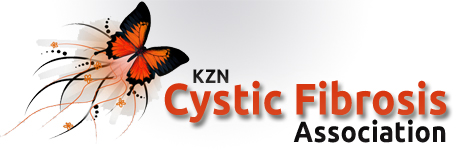Cystic Fibrosis related Diabetes
Management of cystic fibrosis-related diabetes in children and adolescents
There are important differences between CFRD and both type I and type 2 diabetes, which necessitate a unique approach to diagnosis and management (Table 1) and the involvement of a paediatric endocrinologist as part of the management team. Few CF patients have completely normal blood glucose levels at all times. The earliest change is variable, intermittent post-prandial hyperglycemia followed by impaired glucose tolerance (IGT), then diabetes without fasting hyperglycemia, and diabetes with fasting hyperglycemia. A diagnosis of ''normal'' glucose tolerance on oral glucose tolerance testing does not exclude abnormal post-prandial glucose levels at home - when far more than 75 grams of carbohydrate may be consumed.
Factors specific to CF that cause fluctuations in glucose metabolism include:
- respiratory infection and inflammation,
- increased energy expenditure,
- malnutrition, glucagon deficiency and
- gastrointestinal abnormalities
- malabsorption,
- altered gastric emptying and intestinal motility
- liver disease.

Pathophysiology
Abnormal chloride channel function in CF results in thick viscous secretions causing obstructive damage to the exocrine pancreas with progressive fibrosis and fatty infiltration. This result in disruption and destruction of islet architecture leading toloss of endocrine beta, alpha and pancreatic polypeptide cells. Beta-cell dysfunction is not related to autoimmune disease in CF, outside of isolated case reports of autoantibody positive individuals with CFRD.
The role of insulin deficiency
The primary defect in CFRD is severe but not absolute insulin deficiency. Virtually all exocrine insufficient patients with CF, with and without diabetes, show evidence of beta-cell dysfunction . Fasting insulin and C-peptide concentrations are normal, but there is delay and blunting of peak insulin secretion during a standard OGTT. This effect is more pronounced with worsening glycemic status. Delayed insulin secretion during the OGTT is related to loss of first phase insulin secretion, which is found even in CF patients with normal glucose tolerance. Secretion of other islet hormones is also impaired in CF, in particular loss of glucagon responses.
The role of insulin resistance
In CF patients without diabetes, insulin sensitivity is variable. While most of these patients are sensitive to insulin in their baseline state of health, infection and inflammation increase insulin resistance. CF patients with diabetes are insulin resistant, due to both decreased peripheral glucose uptake and poor insulin suppression of hepatic glucose production. Insulin resistance can become acutely severe during infectious exacerbations.
Clinical Features
- Unexplained polyuria or polydipsia
- Failure to gain or maintain weight despite nutritional intervention
- Poor growth velocity
- Delayed progression of puberty
- Unexplained chronic decline in pulmonary function
Diagnosis of CFRD
- Oral glucose tolerance test
- Random and fasting glucose levels - while hyperglycemia is diagnostic for diabetes, normal fasting or random glucose levels do not exclude a diagnosis of diabetes in CF
- Continuous glucose monitoring - this may aid the diagnosis of CFRD when considered in conjunction with the OGTT result and the clinical scenario.
- HbA1c has been shown to be unreliable in the diagnosis of CFRD.
Treatment
Insulin Therapy
Insulin is the only recommended medical therapy for CFRD. Insulin therapy may help to stabilise lung function and improves nutritional status in patients with CFRD. There are no definitive data to date on the benefits of insulin therapy for CF children and adolescents with milder forms of abnormal glucose tolerance, although a small case series has demonstrated similar benefit. Choice of the insulin regimen depends on individual needs and characteristics of the patient. The standard basal bolus regimen provides background insulin and a continuous anabolic effect. The short acting insulin controls postprandial hyperglycaemic episodes and provides flexibility for variable eating patterns. Alternatively, effective basal-bolus therapy can be accomplished with insulin pump therapy.
Oral diabetes agents
Oral diabetes agents are currently not recommended in CFRD.
CFRD without fasting hyperglycemia and CF with impaired glucose tolerance
While insulin treatment of CFRD with fasting hyperglycemia has been the accepted standard-of-care for several years, treatment of less severe glucose tolerance
abnormalities has been more controversial. Results from a recent multi-center, randomized, placebo-controlled clinical trial demonstrate that premeal insulin therapy reversed chronic weight loss in adults with CFRD without fasting hyperglycemia and this effect was sustained over one year of treatment. Thus, insulin therapy is now recommended for all patients with CFRD with or without fasting hyperglycemia. There are insufficient data at present to make recommendations for patients with IGT or those who have NGT by OGTT testing but intermittent asymptomatic hyperglycemia when tested at home.

Routine annual testing for diabetes should be performed in CF patients aged 10 years and older during a time when they are clinically well. The decision to treat should be based on consideration of blood glucose levels and the impact of treatment on the individual's overall condition.

Routine annual testing for diabetes should be performed in CF patients aged 10 years and older during a time when they are clinically well. The decision to treat should be based on consideration of blood glucose levels and the impact of treatment on the individual's overall condition.

